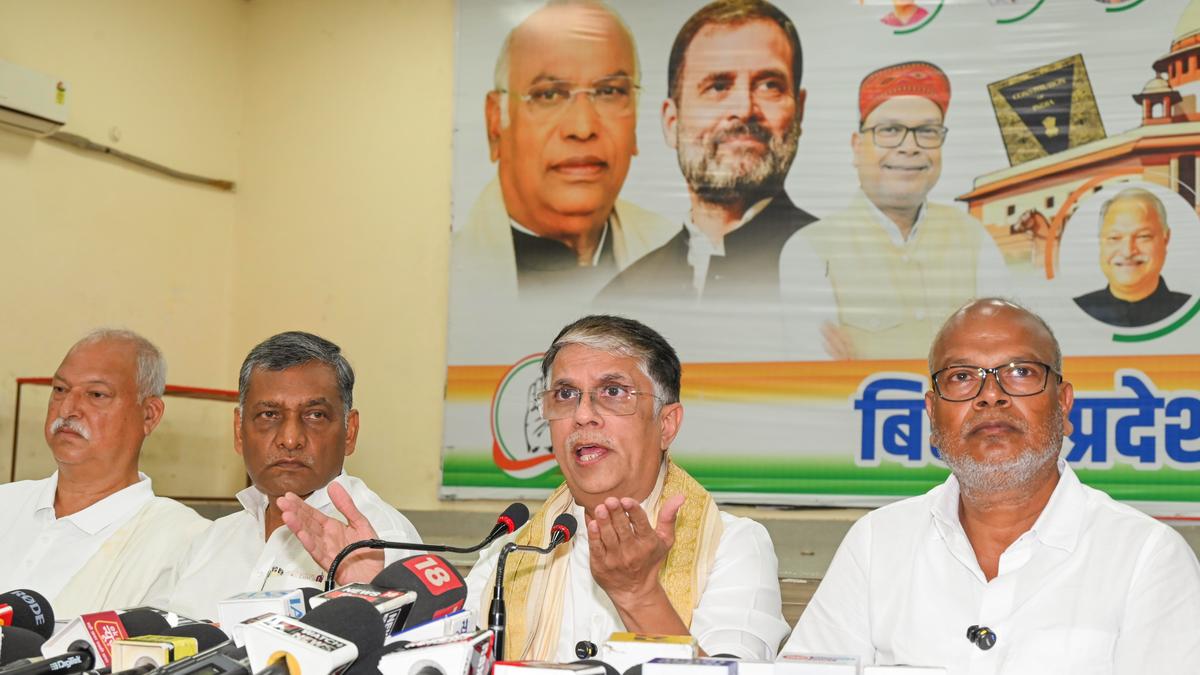Now Reading: Congress Filed 89 Lakh Complaints in Bihar, All Rejected: Pawan Khera
-
01
Congress Filed 89 Lakh Complaints in Bihar, All Rejected: Pawan Khera
Congress Filed 89 Lakh Complaints in Bihar, All Rejected: Pawan Khera

Quick Summary
- Senior Congress leader Pawan khera alleged that 89 lakh complaints of irregularities were filed by the party’s Booth Level Agents (BLAs) during the special Intensive Revision (SIR) of electoral rolls in Bihar,but were rejected by the Election Commission (EC).
- Khera demanded door-to-door verification and re-conducting of the SIR exercise to address large-scale deletions and alleged irregularities.
- He claimed that names of 65 lakh voters in Bihar were deleted from electoral rolls across 90,540 booths, citing migration (25 lakh), deceased individuals (22 lakh), absence at listed addresses (9.7 lakh), and others with high shares affecting women voters disproportionately.
- Allegations included cases where a single voter was assigned two EPIC numbers and booths showing excessive deletion data for certain categories.
- The office of Bihar’s Chief Electoral Officer denied these claims, asserting no formal complaints or objections have been submitted through proper channels by Congress representatives so far.
- The EC clarified that current draft electoral rolls are not final; claims and objections can still be addressed before completion via prescribed verification processes like ERONET software systems identifying duplicates for ground review.
Indian Opinion Analysis
The allegations made by Congress regarding large-scale irregularities in Bihar’s Special Intensive Revision process raise crucial concerns about transparency in maintaining accurate electoral rolls-an issue central to democracy. Tho, with the verification process ongoing and draft lists subjected to scrutiny via public claims/objections periods, it truly seems premature to conclude systemic wrongdoing without substantial evidence supported through official channels.
Implications could unfold on multiple fronts: strengthened mechanisms might be needed for verifying demographics in rural constituencies while addressing political parties’ practical challenges filing disputes collectively rather than individually as mandated currently. Given EC’s defensive stance backed by technical explanations using software detection tools combined field validation-it remains critical ensuring trust fairness systematically.
























